by Christie Purifoy | Oct 30, 2015 | Autumn, children, Community, Faith, motherhood, Religion
I wrote these words exactly one year ago. Today, we will carve pumpkins, adjust costumes, and pull the old decorations from the basement. The boys made a scarecrow last week, but he still needs a pumpkin head.
The kids are so much taller, and Elsa is old enough now to refuse the costume we chose for her. But so much is the same. These words are still true.
*
My friend looks up toward the trees and says I had forgotten how graceful dying can sometimes be.
I follow her glance and know that she is right. I, too, have forgotten. I remember autumn through snapshots. Which means, I remember the brilliance of that one sugar maple down the road. Or, I remember the startling red of a Burning Bush shrub against a deep blue sky.
The snapshots help me to remember true moments, fiery moments, but they do not give an accurate picture of the whole.
Autumn, taken as a whole, does not look like clear, bright brilliance. Here in my corner of Pennsylvania, it is gentle. Faded. It is burnished gold and copper. It is gray clouds and wet pavement.
This autumn world does not rage against the dying of the light. It smolders, quietly.
Gracefully.
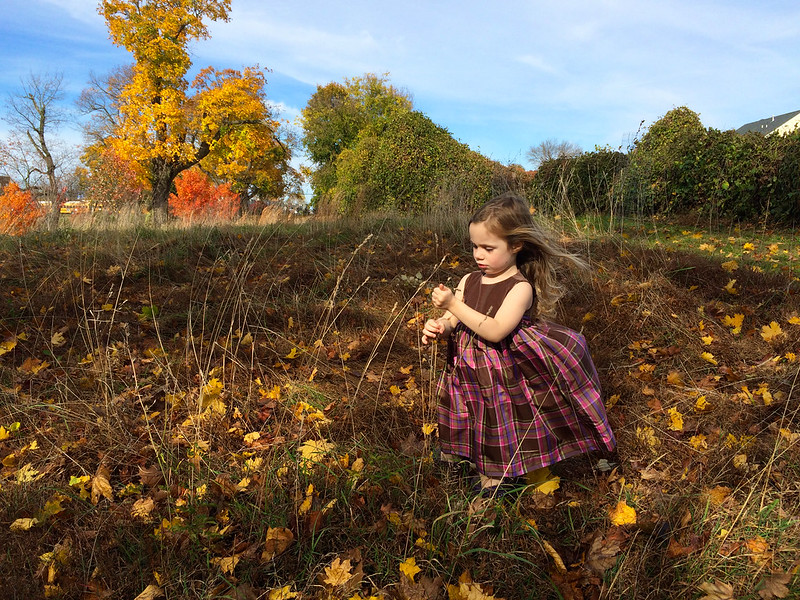
Christians like to talk about Halloween on the internet. I have usually abstained from those “conversations.” So much depends upon context. Like the context of our own memories. Like the context of our own communities. Often, the internet is a conversation without a context.
Here is a bit of mine. In the church of my childhood, Halloween was ever-so-slightly taboo. We wore costumes, but we wore them to collect candy at our church’s “Harvest Fair.”
As new parents, we discovered the great adventure of escorting a temperamental two-year-old ladybug down city streets. We stole her candy when she wasn’t watching, and we hugged our neighbors. We tried to catch the eye of their over-tired Dorothy or Scarecrow. To tell each one we had no idea it was them.
Still, decorating my home for Halloween always seemed like a step too far. Until we came here. Now we live in the farmhouse on the hill and how else can we entice our neighbors and their children to climb our hill, to receive our gift of love and candy, but with a few smiling ghosts and candle-lit pumpkins?
Context. It changes things. Changes us.
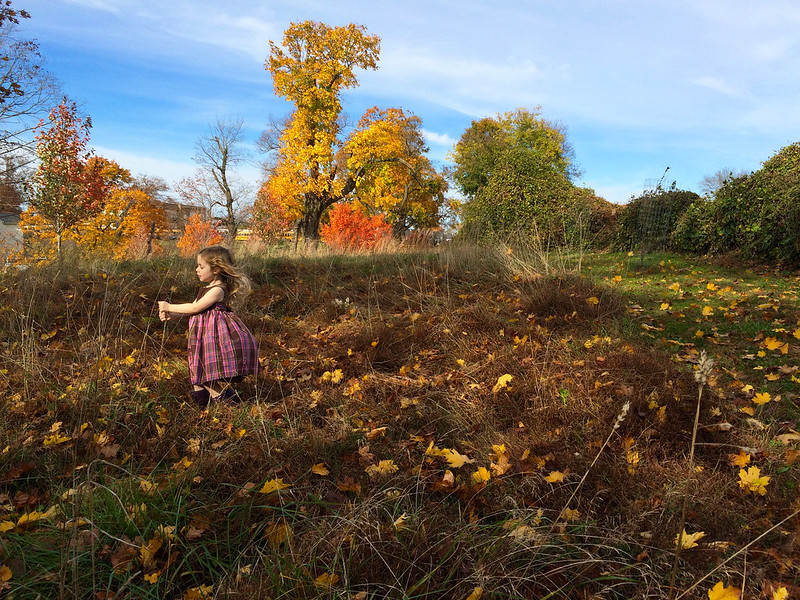
We live in a culture that largely ignores death.
Our children no longer walk to church through churchyards dotted with graves. Our own church is that rare thing with its own cemetery, but it is all the way around by the back door. My children often ask to walk that way, but I am in a hurry. Another time, I say, as I rush them through the front door.
I am sorry for this. And so, this year, I am grateful for Halloween. I am grateful for the space it opens up. I am less grateful for the gory zombie poster set at a child’s eye level at the local Wal Mart, but mostly I am grateful for the opportunity to talk about death. About dying. About our baptism and what it might mean that we have already died with Christ.
Which is, to say, we will have a conversation about living.
Soon, we will bring out the plywood grave markers my husband made last year. Our kids painted them gray with black crosses and the letters R I P. We will tuck them near the crumbling stone foundations of the old farm buildings, and we will drape them with twinkly lights.
As we outline a path for candy-seeking neighbors, my daughter will ask me again about those letters R I P. And as darkness settles, and the lights begin to flicker and gain strength, she will tell me, It’s beautiful.
So beautiful.
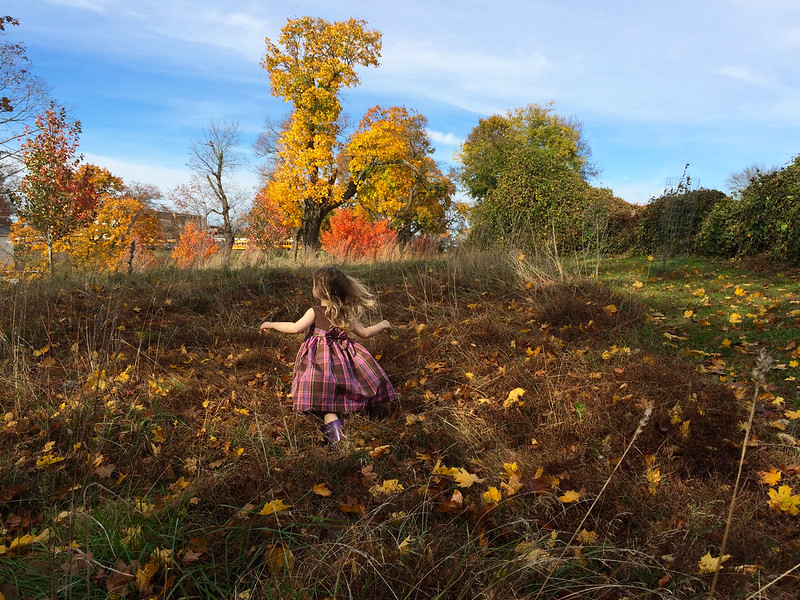
by Christie Purifoy | Oct 23, 2015 | Autumn, Faith, God, grief, Joy, Pennsylvania, Scripture, Seasons, Uncategorized
It was the time between the lights when colours undergo their intensification and purples and golds burn in window-panes like the beat of an excitable heart; when for some reason the beauty of the world … which is so soon to perish, has two edges, one of laughter, one of anguish, cutting the heart asunder. – Virginia Woolf, A Room of One’s Own
It is October. Blog posts should come easily right now. Beauty upon beauty spins gently from the maple trees. The world is polished to a coppery shine. Yet I have felt anxious. Tongue-tied.
Virginia Woolf was right about the beauty that is particular to October days. Yes, there is laughter (children diving into piles of leaves, Jonathan and I planting daffodil bulbs together), but there is anguish, too.
For weeks now I have been trying to understand why the beauty of October makes me sad. Has it always been this way? Is it more pronounced this year?
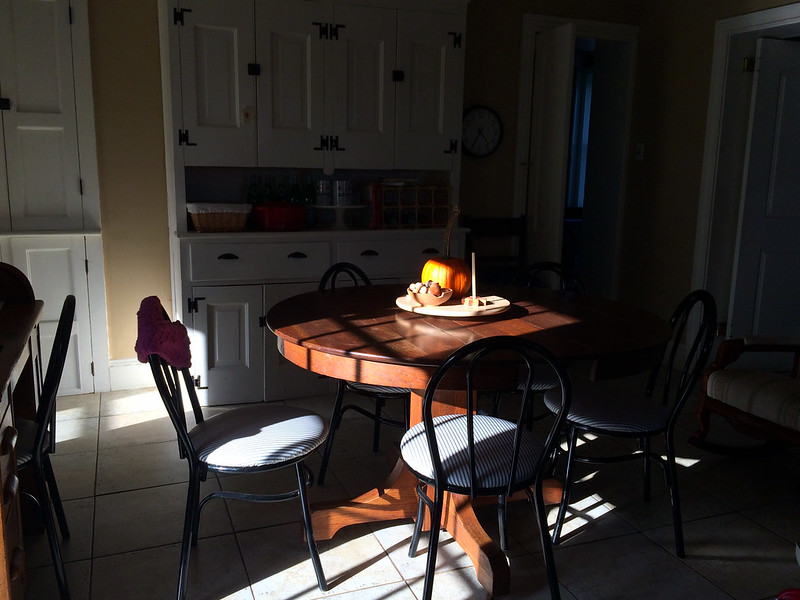
Last spring, I wrote about the beauty of the golden hour. Here at Maplehurst, the whole month of October is golden. There is the glow of all these maple trees, but it is more than that. The light itself has changed. It is rich and thick, like caramel sauce. Or melted butter. Now, even the blue sky has a golden tint.
What is the golden hour? What is this golden, October light?
It is good news from a far country (Proverbs 25:25).
But that country is not yet our possession. It remains just out of reach. During October, it draws near, but it will not stay for long. I never can forget that all these trees will soon be bare.
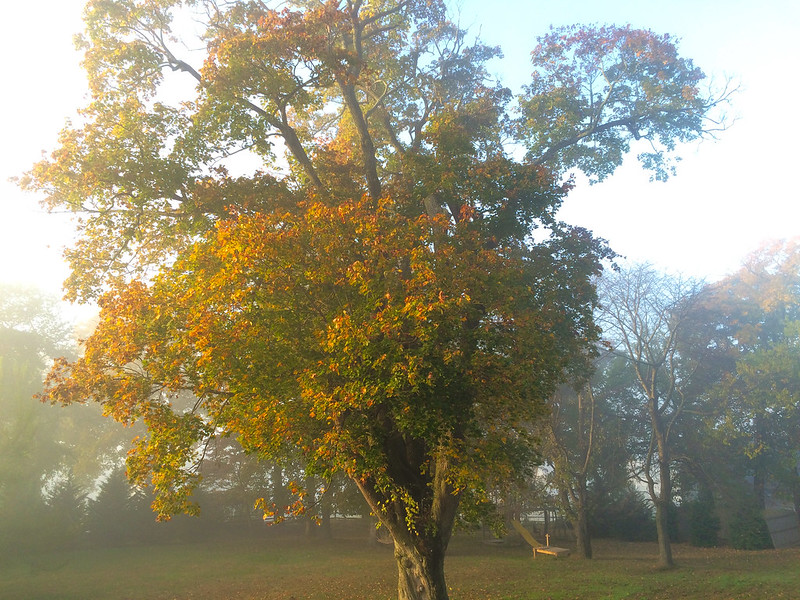
Perhaps one way we follow in the footsteps of a wounded redeemer is when we do not look away. When we refuse the numbness and distraction of our cellphone or our television show or whatever it is that is so much less beautiful and so much easier to behold.
It isn’t easy to live our lives against the backdrop of rich, ringing gold. The rift between October’s beautiful song and our own tempers and headaches and worries is too great. It would be easier not to look. Not to see.
In October, I understand that I live most of my days with a veil over my eyes.
Will we ever be bold enough to lift our heads towards an October sky and “with unveiled faces contemplate the Lord’s glory?” (2 Cor 3:18).
The cost is anguish, but the prize is laughter.
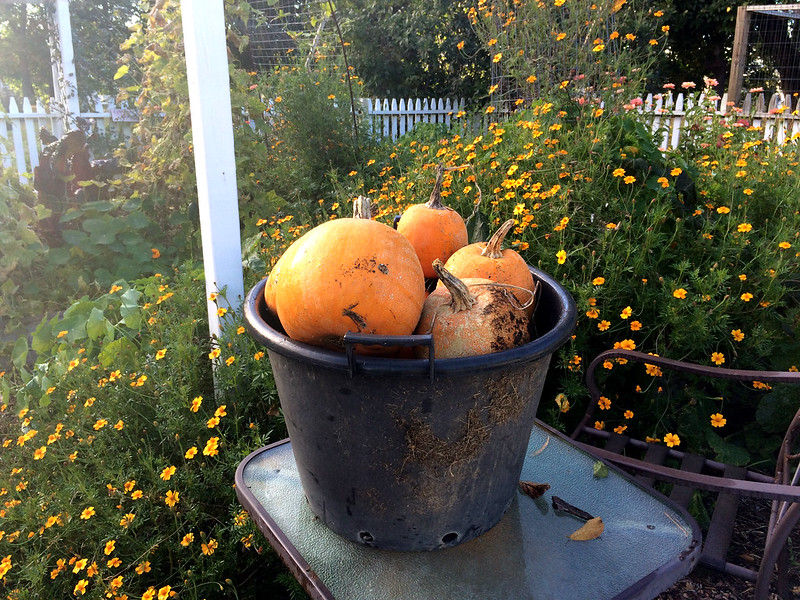
by Christie Purifoy | Sep 23, 2015 | Autumn, Gardening, Life Right Now, motherhood, Pennsylvania, Seasons, Uncategorized
(this post contains affiliate links)
Is green edged with gold.
It is the first official day of autumn, but we have been observing its approach for weeks. The lingering heat and humidity made us doubt our eyes. Now that the air has shifted, now that we have retrieved our jackets from the back of the wardrobe, we cannot tell ourselves that the cherry trees with their yellow leaves are overeager.
The maples are shaded with color now. The pumpkins lined up outside the grocery store no longer seem presumptuous.
/
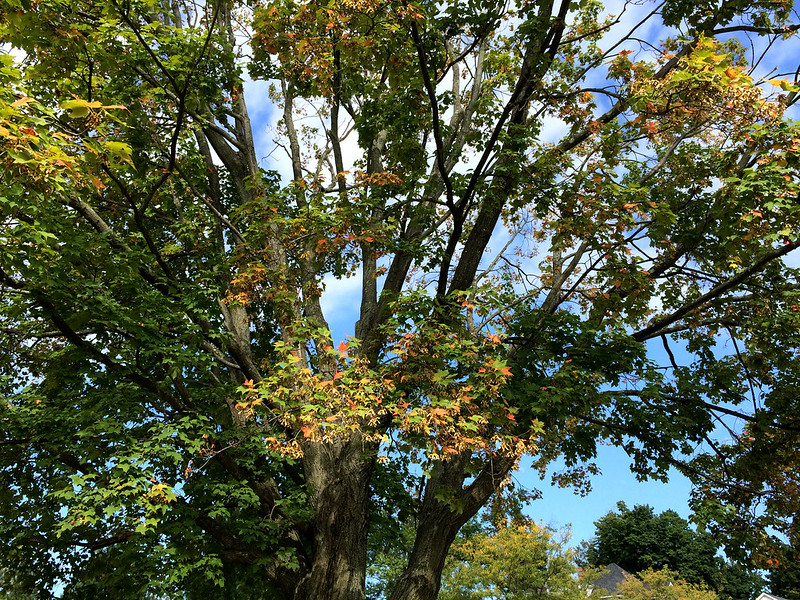
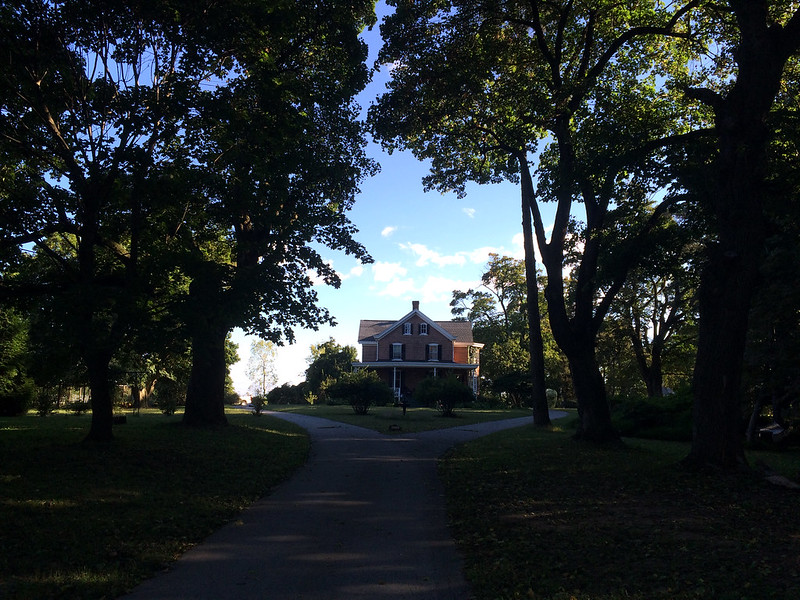
/
Last weekend, Jonathan and I buried two hundred daffodil bulbs on the slope above the driveway.
Every year when I trip over a just-delivered box of bulbs on the porch near our back door, I feel beleaguered. Who has time for bulbs when the younger two won’t stop poking one another then screeching and the older two are whining about after-school snacks and someone refuses to meet my eye when asked about his school reading log?
But every year when spring finally breaks through, I wish I had planted more. I always wish for more.
I am trying to remember that winter-weariness. Trying to remember what those bulbs will mean come April.
Two hundred daffodils are only the beginning. I’ll plant at least as many more when another box shows up some time in October. More daffodils, but also alliums for the new flower garden and tulips for the raised beds in the vegetable garden.
If I plant tulips anywhere else they’ll only be eaten by deer, so I fill a bed or two inside the picket fence. When the tulips are finished in May, I can fill those spots with tomatoes or peppers or beans.
/
I am reading Terry Tempest Williams’ beautiful book Refuge: An Unnatural History of Family and Place . Early on, she writes, “Peace is the perspective found in patterns.”
. Early on, she writes, “Peace is the perspective found in patterns.”
When I came across that line, I put down my book and went in search of a pen. Her words describe something I have been living for years now, but only dimly perceived. The poetry of her sentence, with its alliterative P, has made something invisible in my experience visible to me.
The earth is full of patterns and rhythms. Some we merely observe but others invite collaboration. Like the planting of bulbs in autumn and the picking of flowers in spring.
These back-to-school days have been anxious days for me, but feeling again the net bag of bulbs stretched tight against the palm of my hand is like feeling my head surface above deep water.
I can breathe again. The peace of a larger, more meaningful perspective fills my lungs.
Homework may go unfinished, my children may go on poking and screeching, but wasn’t it only yesterday I was digging in bulbs with a baby strapped to my back? And isn’t it only tomorrow when those bulbs will bloom again?
The earth spins so fast. There is so much to remember (not homework but the feel of a baby on my back). There is so much to anticipate.
The present moment is always what matters most. But it matters most when it is rooted in memory even as it reaches toward that which is still to come.
/
by Christie Purifoy | Oct 30, 2014 | Autumn, children, Community, Jesus, Pennsylvania, Seasons, Uncategorized
My friend looks up toward the trees and says I had forgotten how graceful dying can sometimes be.
I follow her glance and know that she is right. I, too, have forgotten. I remember autumn through snapshots. Which means, I remember the brilliance of that one sugar maple down the road. Or, I remember the startling red of a Burning Bush shrub against a deep blue sky.
The snapshots help me to remember true moments, fiery moments, but they do not give an accurate picture of the whole.
Autumn, taken as a whole, does not look like clear, bright brilliance. Here in my corner of Pennsylvania, it is gentle. Faded. It is burnished gold and copper. It is gray clouds and wet pavement.
This autumn world does not rage against the dying of the light. It smolders, quietly. Gracefully.
*
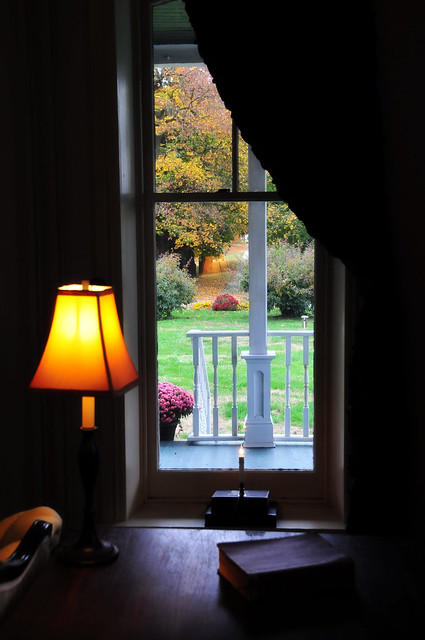
*
This time of year, it seems Christians like to talk about Halloween on the internet. I tend to abstain from those “conversations.” So much depends upon context. Like the context of our own memories. Like the context of our own communities. Often, the internet is a conversation without a context.
Here is a bit of mine.
In the church of my childhood, Halloween was ever-so-slightly taboo. We wore costumes, but we wore them to collect candy at our church’s “Harvest Fair.”
As new parents, we discovered the great adventure of escorting a tempermental two-year-old ladybug down city streets. We stole her candy when she wasn’t watching, and we hugged our neighbors. We tried to catch the eye of their over-tired Dorothy or Scarecrow. To tell each one we had no idea it was them.
Still, decorating my home for Halloween always seemed like a step too far. Until we came here. Now we live in the farmhouse on the hill and how else can we entice our neighbors and their children to climb our hill, to receive our gift of love and candy, but with a few smiling ghosts and candle-lit pumpkins?
Context. It changes things.
Changes us.
*
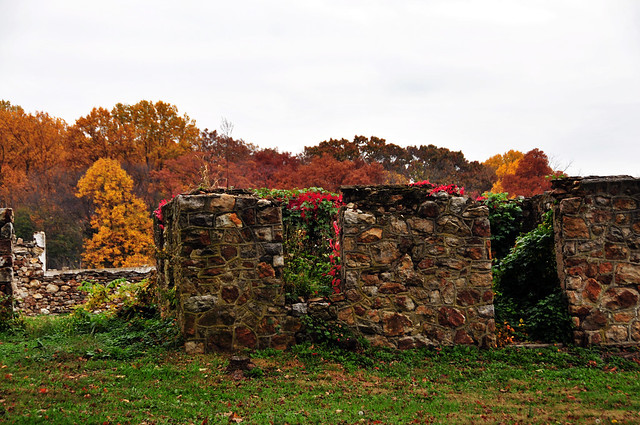
*
We live in a culture that largely ignores death. Our children no longer walk to church through churchyards dotted with graves.
Our own church is that rare thing with its own cemetery, but it is all the way around by the back door. My children often ask to walk that way, but I am in a hurry. Another time, I say, as I rush them through the front door.
I am sorry for this. And so, this year, I am grateful for Halloween. I am grateful for the space it opens up. I am less grateful for the gory zombie poster set at a child’s eye level at the local Wal Mart, but mostly I am grateful for the opportunity to talk about death. About dying. About our baptism and what it might mean that we have already died with Christ.
Which is, to say, we will have a conversation about living.
Soon, we will bring out the plywood grave markers my husband made last year. Our kids painted them gray with black crosses and the letters R I P. We will tuck them near the crumbling stone foundations of the old farm buildings, and we will drape them with twinkly lights.
As we outline a path for candy-seeking neighbors, my daughter will ask me again about those letters R I P. And as darkness settles, and the lights begin to flicker and gain strength, she will tell me It’s beautiful, Mom. So beautiful.
*
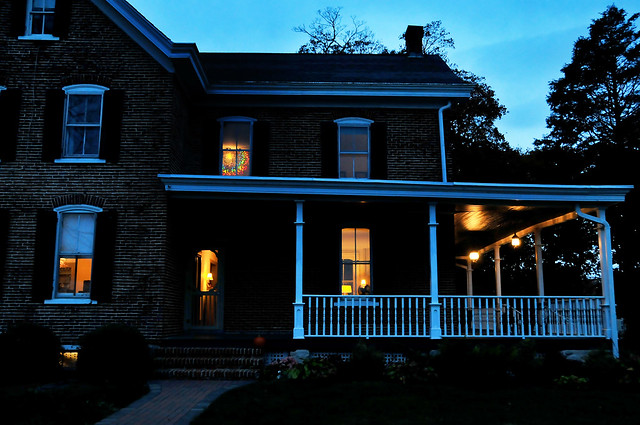
*
by Christie Purifoy | Oct 2, 2014 | Autumn, Faith, Jesus, Scripture, Seasons, Stories, Uncategorized
Autumn is announced by the seedling trees. The baby trees. They are the first to abandon their green in favor of orange or red or yellow.
Driving these country roads, they are like lit matches. Small, flickering flames against the general greens and faded browns of early autumn.
They are children embracing the arrival of something new. They wear their faith like Joseph’s multi-colored coat, and we cannot look away. Soon, even the staid elders will shake off their summer sleep.
Until they blaze.
*
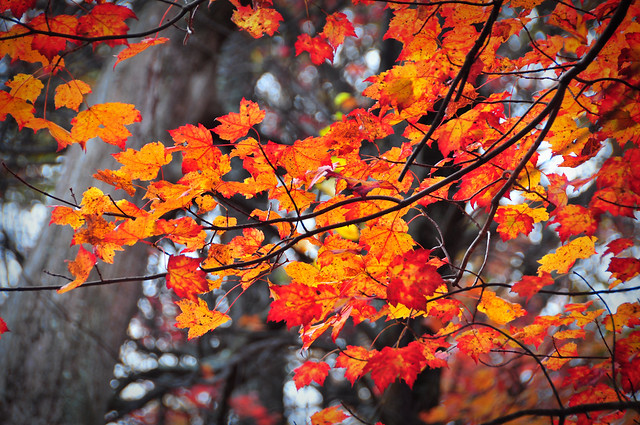
Truly I tell you, unless you change and become like little children, you will never enter the kingdom of heaven. (Matthew 18:3)
I observed the brilliant, baby trees, and I immediately thought of Jesus’s words. I imagined I could write out the connection. That I could find some moral in what I had seen.
But trees are living things. They are not convenient object lessons.
Maybe they could be parables. Easy to decode but almost impossible to comprehend. Truth so tall and deep, it avoids our grasp, seeking instead the deep well of our hearts.
I will open my mouth in parables, I will utter things hidden since the creation of the world. (Matthew 13:34)
Yesterday, I saw a strange sight. Walking to shut up the chickens for the night, I saw a line of geese heading southeast. They were black silhouettes against the slate gray backdrop of the sky.
I stood perfectly still watching them, captured by some mystery that wasn’t immediately apparent. Then it came to me in two parts.
First, the geese traveled in a single diagonal line, but there was only emptiness where the other half of the V should have been. Was this a picture of loss and grief? Or only the notice of job vacancies in the sky?
Second, they were quiet. I could hear nothing. No flap of wings, no honking calls.
Be silent, all flesh, before the Lord, for he has roused himself from his holy dwelling. (Zechariah 2:13)
I read my Bible, and I watch the trees. I stop to consider the birds. I am learning to collect hidden things. To store them up for the winter day of my need.
And on that day I will know exactly what it means to be a young tree wearing a blaze of color.
I will understand just how much depends upon chasing the far horizon in complete silence.
*
by Christie Purifoy | Sep 17, 2014 | Autumn, river, Scripture, Seasons, Uncategorized, Writing
Some beginnings are brown. There is nothing fresh or new about them.
Take autumn, for instance. In my mind, it begins with the first gilded edge on the giant magnolia tree. In my mind, it begins with the weeping willow’s coppery sheen.
Apparently, my mind is wrong. Has been wrong for all these years. Because autumn is beginning, and it is brown.
It is brown where the seed pods rattle in the flowerbeds. It is brown where the first leaves have fallen and turned crispy. They were overeager. They could not wait for their orange or red transformation. The reward for their impatience is to be mistaken for dull oak leaves rather than the vivid maples they are.
*
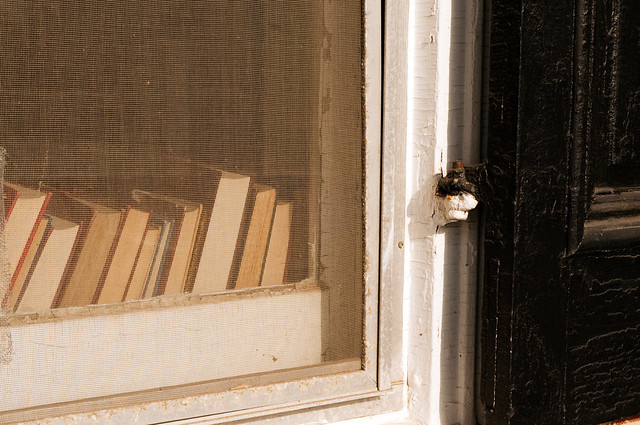
*
Some have asked how the book writing is progressing. I tell them all the same thing. I tell them I have written a lot of words, and I despise every one of them.
The response to my honesty has been, universally, a wide-eyed look of concern. I appreciate the concern. It draws out the nurturer in me. I want to pat each friend on the hand, I want to pat myself on the hand, and say, “There, there. I think it will be okay. It is only that some beginnings are brown.”
*
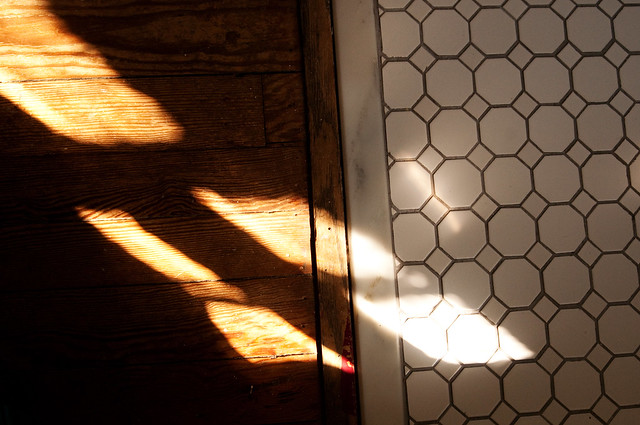
*
Beginnings rarely make a clean break with endings. The two are usually muddled together.
It can all be a bit discouraging without eyes to see. I am praying for eyes to see.
Forget the former things; do not dwell on the past. See, I am doing a new thing! Now it springs up; do you not perceive it? (Isaiah 43:18-19)
Do not dwell on the past.
What relief there is in those words. How light is their burden.
Light enough that we are able to keep walking. Perhaps even with a spring in our step, which, as you know, is a sign of anticipation. We know we are closer.
Every day brings us closer to that place where the water runs fast and clear.
*
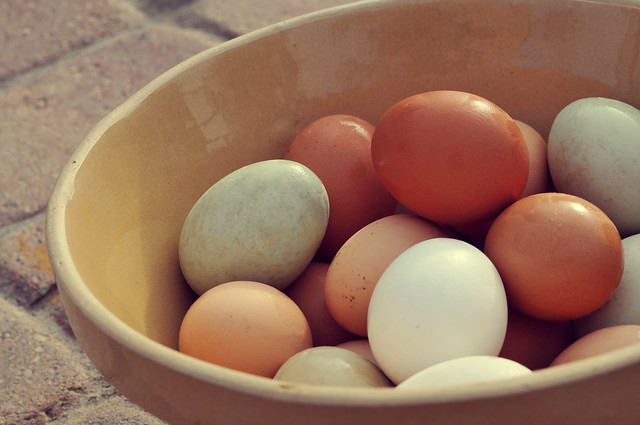
*















